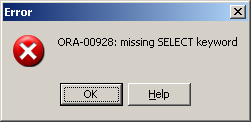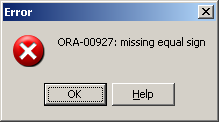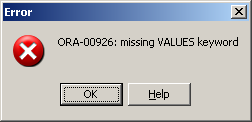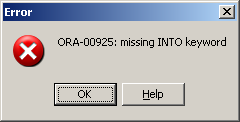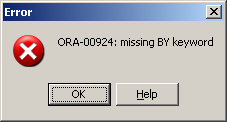Resolution
The option(s) to resolve this Oracle error are:
Option #1
If this error occurred in the SET clause of an UPDATE statement, add the missing equal sign and re-execute the statement.
For example, if you tried to execute the following:
UPDATE suppliers
SET supplier_name 'IBM'
WHERE supplier_id = 1000;
You would receive the following error message:
You could correct this error by adding the missing equal sign, as follows:
UPDATE suppliers
SET supplier_name = 'IBM'
WHERE supplier_id = 1000;
Option #2
If this error occurred in a search condition when you are trying to determine a "not equals" condition, add the missing equal sign and re-execute the statement.
For example, if you tried to execute the following:
SELECT *
FROM suppliers
WHERE supplier_id ! 1000;
You would receive the following error message:
You could correct this error by adding the missing equal sign, as follows:
SELECT *
FROM suppliers
WHERE supplier_id != 1000;
This statement would return all suppliers whose supplier_id is not equal to 1000.
